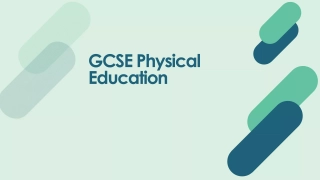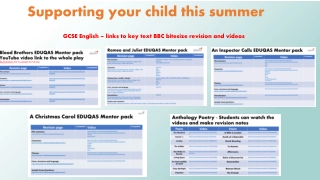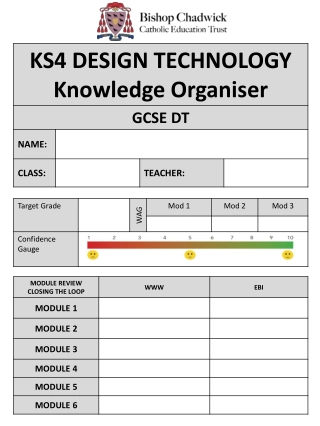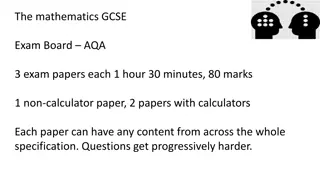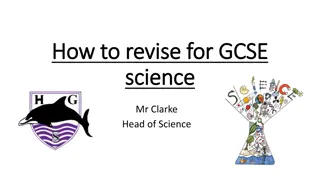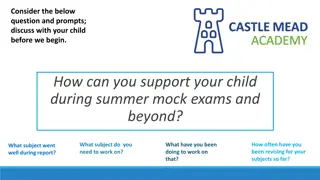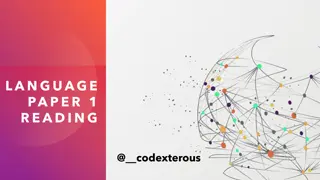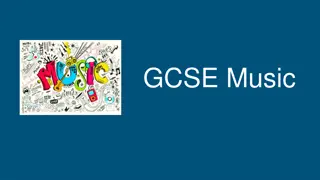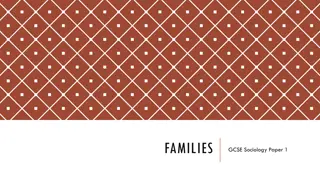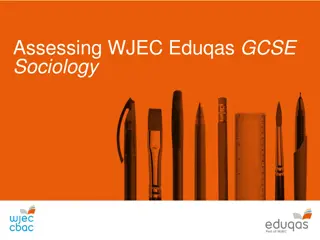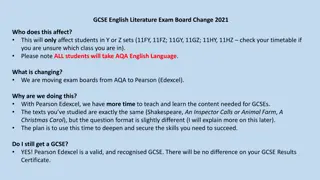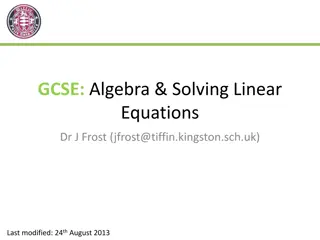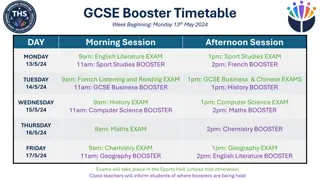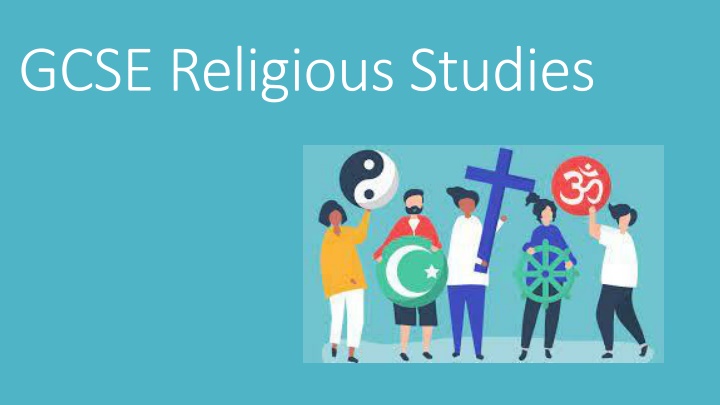
GCSE Religious Studies: A Comprehensive Overview
Dive into the world of GCSE Religious Studies and explore ethics, philosophy, and religion through the study of Christianity, Islam, and key thematic topics. Discover the exam details, curriculum components, and how this course can complement your education journey.
Download Presentation

Please find below an Image/Link to download the presentation.
The content on the website is provided AS IS for your information and personal use only. It may not be sold, licensed, or shared on other websites without obtaining consent from the author. If you encounter any issues during the download, it is possible that the publisher has removed the file from their server.
You are allowed to download the files provided on this website for personal or commercial use, subject to the condition that they are used lawfully. All files are the property of their respective owners.
The content on the website is provided AS IS for your information and personal use only. It may not be sold, licensed, or shared on other websites without obtaining consent from the author.
E N D
Presentation Transcript
What is Religious Studies? The GCSE course is called Religious Studies by the Department for Education but it involves all aspects of Ethics, Philosophy, and Religion you have become accustomed to lower down the school. The course is for everybody whether you are religious or not.
Will I miss out on the E-Baccif I take Religious Studies? No. The E-Bacc is a league table measure and not a certificate you will receive as a return for studying a particular suite of subjects. Religious Studies would be an additional humanities you can take alongside the E-Bacc subjects.
Which examining body is responsible for the GCSE Religious Studies course? We follow AQA s Specification A. You can find further details here: https://www.aqa.org.uk/subjects/religious-studies/gcse/religious- studies-a-8062 Click on Specification at a Glance to find a detailed list of what you will study. Please bear in mind you will only study two religions (Christianity and Islam) and four themes (A,B, E and F). Click on Past Papers and Mark Schemes to see what your exams and assessments will look like
What are the exams like? You will sit two papers, which are worth 50% each. Each paper is 1 hour 45 minutes long. You will be required to answer questions from 4 sections in both papers. What you have to do is easy to remember as the format of the questions the same in each section and both papers: Q1 tick the correct answer for 1 mark; Q2 give two terms or two short sentences for 2 marks; Q3 give two answers explained in brief paragraphs for 4 marks; Q4 give two answers explained in brief paragraphs with a quotation for 5 marks; Q5 write 3 paragraphs in which you argue for then against an opinion and conclude for 12 marks.
What do we study? There are two components: Paper 1 the Study of Religion; Paper 2 Thematic Studies. The Study of Religion paper involves learning about the beliefs and practices of Christianity and Islam. The Thematic Studies paper explores a range of ethical and philosophical questions and issues. The themes studied include: Relationships and family (theme A) Religion and life (theme B) Crime and punishment (theme E) Human rights and social justice (theme F)
How is the course taught? In year 10 you will study Relationships and the family, Human Rights and Social Justice, Christianity and Crime and Punishment In year 11 you will study matters of life, Islam and Christianity. Every lesson usually relates in some way to the modern world, either in terms of how people live their lives today or the issues they face. You will be surprised how often what we learn comes up in the news. You will be able to connect what you are learning with the real world pretty easily. There are plenty of discussions and debates to be had, perhaps even some arguments. You will get to read some really interesting texts and of course you will have to make notes but in a variety of different ways.
Who will teach me? Mrs Walters Mr Morgan Mrs Fletcher
How many lessons will there be? You will have 6 lessons every two weeks. Plenty of time to get into lots of interesting debates.
How does the course relate to A-Level? You will hone the skills of analysis and evaluation throughout the course: these skills are the basis of the assessment objectives at A-Level as well as GCSE. There is less emphasis on the study of religion at A-Level and more time is spent on Ethics and Philosophy. A number of the issues and questions covered in Thematic Studies are covered again but in greater depth at A-Level.
What can you do with a qualification in Religious Studies? Short answer: anything Not just a priest You would be surprised by the wide range of careers open to those with qualifications in Religious Studies. It could help you in the following careers: Advice worker, Archivist, Charity fundraiser, Charity officer, Civil Service administrator, Community development worker, Editorial assistant, Education, Equality, diversity and inclusion officer, Mediator, Newspaper journalist, Policing, Policy officer, Solicitor, Youth worker

